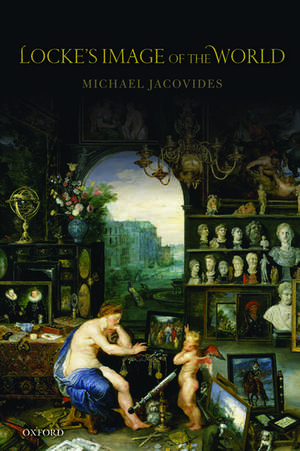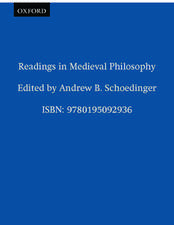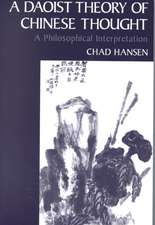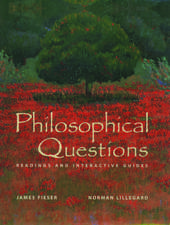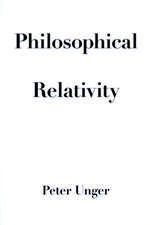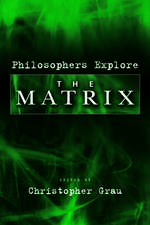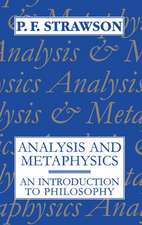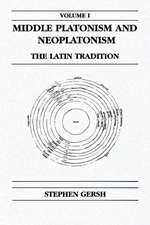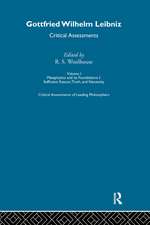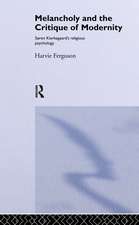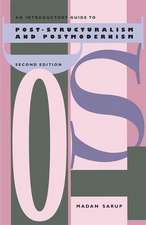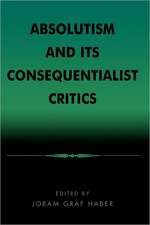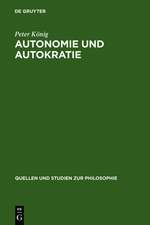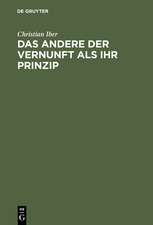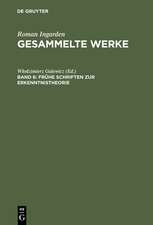Locke's Image of the World
Autor Michael Jacovidesen Limba Engleză Paperback – 17 mai 2019
| Toate formatele și edițiile | Preț | Express |
|---|---|---|
| Paperback (1) | 166.86 lei 31-37 zile | |
| OUP OXFORD – 17 mai 2019 | 166.86 lei 31-37 zile | |
| Hardback (1) | 461.74 lei 31-37 zile | |
| OUP OXFORD – 19 ian 2017 | 461.74 lei 31-37 zile |
Preț: 166.86 lei
Preț vechi: 215.97 lei
-23% Nou
Puncte Express: 250
Preț estimativ în valută:
31.93€ • 33.40$ • 26.52£
31.93€ • 33.40$ • 26.52£
Carte tipărită la comandă
Livrare economică 22-28 martie
Preluare comenzi: 021 569.72.76
Specificații
ISBN-13: 9780198843863
ISBN-10: 0198843860
Pagini: 256
Dimensiuni: 153 x 233 x 14 mm
Greutate: 0.39 kg
Editura: OUP OXFORD
Colecția OUP Oxford
Locul publicării:Oxford, United Kingdom
ISBN-10: 0198843860
Pagini: 256
Dimensiuni: 153 x 233 x 14 mm
Greutate: 0.39 kg
Editura: OUP OXFORD
Colecția OUP Oxford
Locul publicării:Oxford, United Kingdom
Recenzii
Locke's Image of the World is an impressive feat of scholarship. The exposition of late scholastic science and the then developing science, along with how these scientific theories influence Locke, is meticulous, clear, and engaging. Jacovides succeeds in his goal to show how the science of Locke's day influences his philosophy. ... the book will be of interest not only to Locke's interpretersbut also tothose engaged in intellectual history, the history of science, and philosophy of science more generally.
"This illuminating and provocative book. . . . . It is exceptionally well written, and supplies a coherent narrative from a consistent point of view. Jacovides is sympathetic without being uncritical; and whether defending Locke or criticizing him, he puts all of his cards on the table. This is a valuable addition to the literature on Locke, not least because Jacovides makes such an effort to see things as Locke might have seen them, and to get us to do that too."
"Throughout his book, Jacovides's scholarship is impressive, his writing clear and concise, and his assessments of Locke original and engaging. In sum, his book, while impressive as intellectual history is much more than intellectual history in the conventional sense. All in all, a remarkable achievement."
"An excellent synthesis and extension of nearly two decades worth of scholarship from a leading Locke scholar. Jacovides has not only enriched his work by deepening its historical grounding-he has added much rich philosophy.... and it has all been organized into an elegant package. The book is a must read for any Locke scholar and is well worth the time of anyone interested in the interplay between seventeenth century metaphysics, epistemology, and natural philosophy."
"In Locke's Image of the World, Michael Jacovides pursues two goals. The first is to show how Locke's work was embedded in the science and natural philosophy of its time. The second is to show, by using Locke as a case study, that our image of the world is often shaped in important ways by the set of assumptions and ideas that inform our perceptual access to it. To combine these two goals in a single study is ambitious, but Jacovides succeeds in his attempt.... Locke's Image of the World is an extremely rich book that achieves its twofold goal."
"Locke's Image of the World is an impressive feat of scholarship. The exposition of late scholastic science and the then developing science, along with how these scientific theories influence Locke, is meticulous, clear, and engaging... the book will be of interest not only to Locke's interpreters but also to those engaged in intellectual history, the history of science, and philosophy of science more generally."
"This illuminating and provocative book. . . . . It is exceptionally well written, and supplies a coherent narrative from a consistent point of view. Jacovides is sympathetic without being uncritical; and whether defending Locke or criticizing him, he puts all of his cards on the table. This is a valuable addition to the literature on Locke, not least because Jacovides makes such an effort to see things as Locke might have seen them, and to get us to do that too."
"Throughout his book, Jacovides's scholarship is impressive, his writing clear and concise, and his assessments of Locke original and engaging. In sum, his book, while impressive as intellectual history is much more than intellectual history in the conventional sense. All in all, a remarkable achievement."
"An excellent synthesis and extension of nearly two decades worth of scholarship from a leading Locke scholar. Jacovides has not only enriched his work by deepening its historical grounding-he has added much rich philosophy.... and it has all been organized into an elegant package. The book is a must read for any Locke scholar and is well worth the time of anyone interested in the interplay between seventeenth century metaphysics, epistemology, and natural philosophy."
"In Locke's Image of the World, Michael Jacovides pursues two goals. The first is to show how Locke's work was embedded in the science and natural philosophy of its time. The second is to show, by using Locke as a case study, that our image of the world is often shaped in important ways by the set of assumptions and ideas that inform our perceptual access to it. To combine these two goals in a single study is ambitious, but Jacovides succeeds in his attempt.... Locke's Image of the World is an extremely rich book that achieves its twofold goal."
"Locke's Image of the World is an impressive feat of scholarship. The exposition of late scholastic science and the then developing science, along with how these scientific theories influence Locke, is meticulous, clear, and engaging... the book will be of interest not only to Locke's interpreters but also to those engaged in intellectual history, the history of science, and philosophy of science more generally."
Notă biografică
Michael Jacovides is Associate Professor of Philosophy at Purdue University. He has published ten papers on various aspects of Locke's philosophy along with other papers, including Experiences as Complex Events, Hume's Vicious Regress, and How is Descartes' Argument Against Scepticism Better than Putnam's?.
